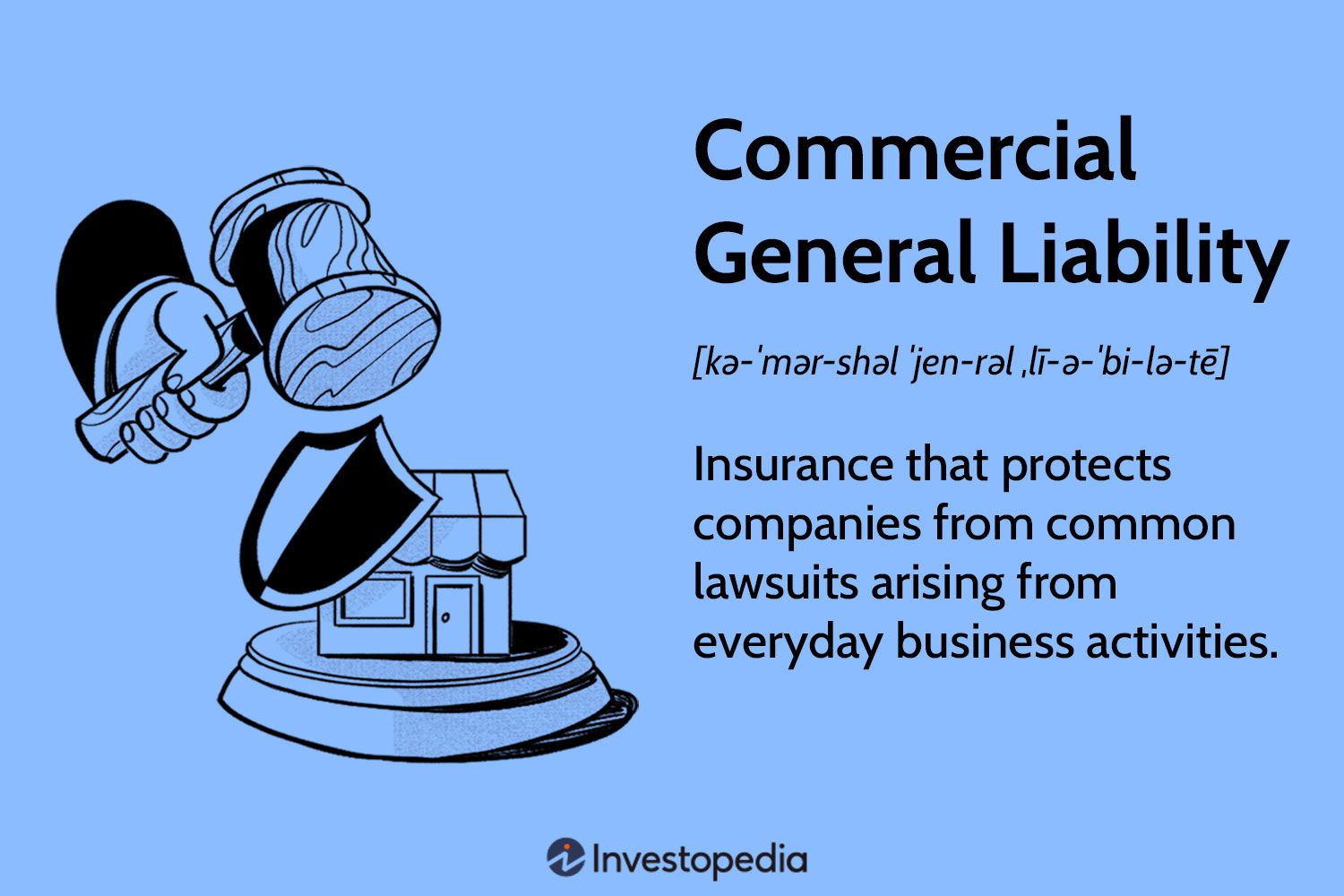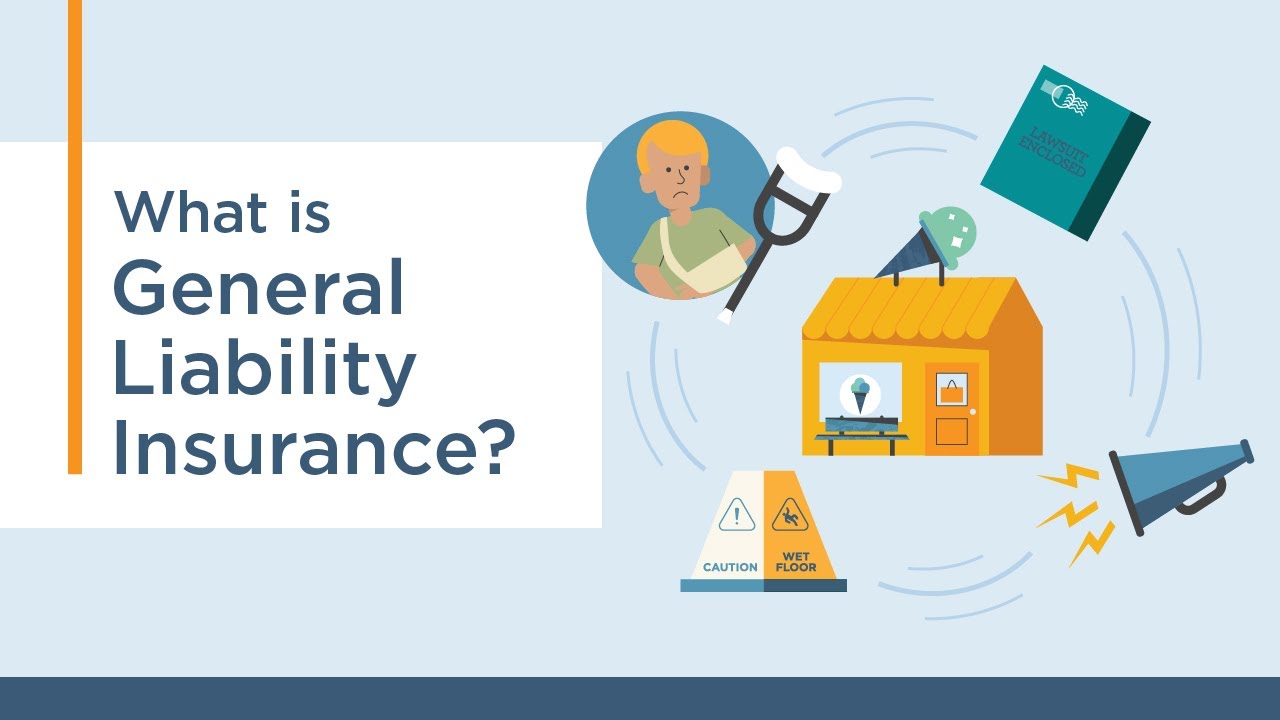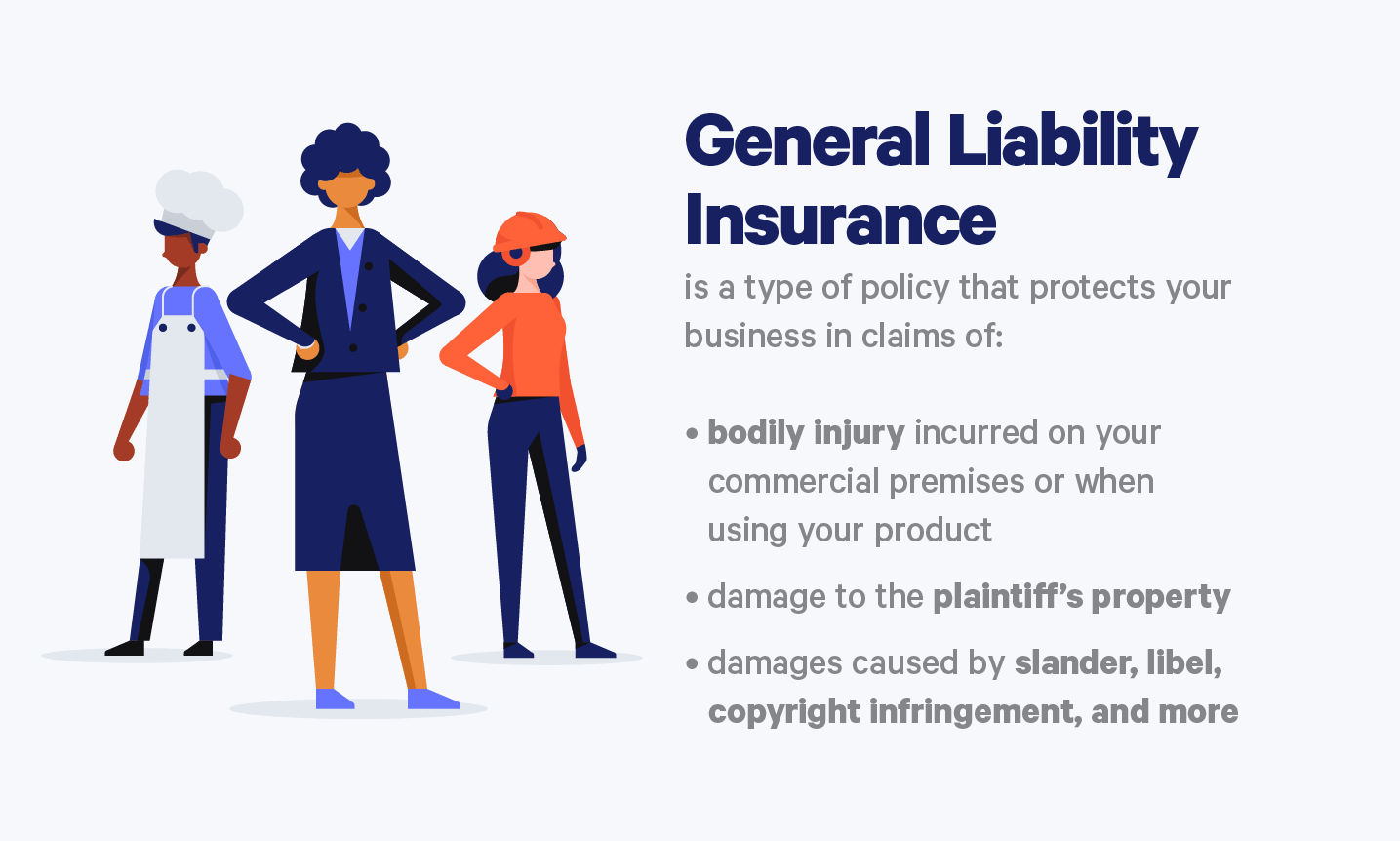General Liability Insurance: A Comprehensive Guide for Businesses
In today’s unpredictable business landscape, it’s more important than ever to protect your company from potential risks. One of the most essential types of coverage every business should consider is general liability insurance. This policy not only helps protect your business assets but also ensures you can continue operating even in the face of lawsuits, accidents, or property damage.
Whether you’re a small startup or a large enterprise, general liability insurance serves as a safeguard against a wide range of potential liabilities. In this comprehensive guide, we will explore what general liability insurance is, why it’s important, what it covers, and how to choose the right policy for your business.

What is General Liability Insurance?
General liability insurance (GLI), also known as commercial general liability insurance (CGL), is a type of business insurance that provides coverage for a variety of common business risks, including bodily injury, property damage, and personal injury claims. It’s designed to protect your business from financial losses that could arise from accidents or incidents that occur during normal operations.
This coverage is especially important for businesses that interact with the public, such as retail stores, restaurants, or service providers. Even businesses that operate online or with limited customer interaction can benefit from this policy, as accidents can happen anywhere, at any time.
Why is General Liability Insurance Important?
1. Protection Against Lawsuits
Lawsuits are one of the biggest threats any business can face. Whether it’s a customer slipping on a wet floor, an employee being injured on the job, or a competitor claiming defamation, general liability insurance can cover legal costs, settlements, and judgments. Without this coverage, your business could be financially crippled by a single lawsuit.
“Legal fees can quickly add up, and even if you win the case, the associated costs may still be significant. General liability insurance provides a crucial safety net to avoid such financial burdens.” — Business Insurance Experts
2. Financial Protection for Property Damage
Accidental property damage, whether caused by your employees, your equipment, or your business activities, is a real risk. If a piece of equipment malfunctions and causes damage to a client’s property or your office building is damaged due to an accident, general liability insurance can cover the repair or replacement costs.
3. Coverage for Personal and Advertising Injury
General liability insurance doesn’t just cover physical accidents. It also protects against claims related to personal and advertising injury. This includes things like defamation, libel, or slander, which could arise from your marketing or advertising efforts. For example, if a competitor sues your business for publishing false claims, this policy can help cover the legal expenses.
4. Business Continuity
In the event of a covered incident, general liability insurance ensures that your business can continue operating. With the financial support from your policy, you won’t have to worry about covering the costs of legal battles, damage claims, or other accidents that might put your business on hold.
What Does General Liability Insurance Cover?
General liability insurance covers a range of incidents that could lead to financial losses. Let’s break down the main areas it covers:
1. Bodily Injury
This is the most common form of coverage provided by general liability insurance. If a customer, client, or visitor is injured while on your property or as a result of your business activities, general liability insurance will cover the medical expenses and legal fees associated with the claim.
For example, if a customer slips on a wet floor in your store and gets injured, your GLI will cover medical bills and possibly any legal costs if the customer files a lawsuit.

2. Property Damage
If your business causes damage to a third party’s property, your general liability insurance will cover the costs of repairs or replacement. This can include damage caused by your employees, equipment, or even a product you sold.
For instance, if an employee accidentally knocks over a client’s expensive equipment during a service call, your GLI would cover the replacement costs.
3. Personal and Advertising Injury
As mentioned earlier, general liability insurance also protects you from claims involving personal injury (e.g., libel or slander) and advertising injury (e.g., using copyrighted content without permission). If your business is accused of making defamatory statements or engaging in unfair advertising practices, this coverage helps cover your legal defense and any associated settlements.
4. Medical Payments
While workers’ compensation insurance covers employee injuries, general liability insurance covers injuries to non-employees. This can include customers, suppliers, or others who might be on your business premises. If someone is injured, GLI can help cover their medical bills without the need for a lawsuit.
Who Needs General Liability Insurance?
While general liability insurance is a critical policy for almost all businesses, some industries have higher exposure to risks and therefore benefit more from this coverage. Here are some examples of businesses that should seriously consider getting this insurance:
1. Retail and Hospitality
Businesses that operate in the retail or hospitality sectors, such as restaurants, cafes, and stores, are especially vulnerable to slip-and-fall accidents and property damage claims. General liability insurance is crucial for these types of businesses, as they often have high foot traffic and numerous interactions with customers.
2. Service Providers
Whether you’re a plumber, electrician, contractor, or any other type of service provider, accidents can happen during your work. Property damage or injury to others on job sites are common risks that general liability insurance can protect you from.
3. E-commerce and Online Businesses
Even if you don’t interact with customers face-to-face, businesses in the e-commerce or tech space can still face advertising injury claims, product liability claims, or lawsuits related to intellectual property. GLI offers essential protection for these risks.
4. Professionals
Professionals such as consultants, lawyers, and accountants can face legal action for errors, omissions, or negligence. While professional liability insurance is a must for these businesses, general liability insurance can also cover other incidents that might occur in the course of business operations.
How to Choose the Right General Liability Insurance
Choosing the right general liability insurance policy can seem daunting, but with the right approach, you can ensure your business is properly protected. Here are some tips for selecting the best policy for your needs:
1. Assess Your Business Risks
Consider the specific risks associated with your business. If you’re in a high-risk industry like construction, you may need more comprehensive coverage, while a smaller online business might require less.
2. Get Multiple Quotes
It’s always wise to get quotes from multiple insurance providers. Compare coverage options, limits, and prices to find the best deal. Online insurance marketplaces like Embroker and Coterie Insurance can help you compare rates from various companies.
3. Understand Policy Limits and Exclusions
Before purchasing any policy, read the terms and conditions carefully. Understand the coverage limits and exclusions, and ask your insurance provider about any aspects that might be unclear.
4. Bundle Policies for Better Savings
If you need multiple types of insurance, such as property or workers’ compensation insurance, consider bundling them into a business owner’s policy (BOP). This can help reduce overall costs.
General Liability Insurance FAQs
1. Is General Liability Insurance Required by Law?
In most cases, general liability insurance is not required by law. However, many landlords, clients, and contractors will require proof of GLI before allowing you to rent space or work with them. In some states, specific industries, like construction, may have requirements.
2. Does General Liability Insurance Cover Employee Injuries?
No, general liability insurance does not cover employee injuries. Employee injuries are typically covered by workers’ compensation insurance.
3. How Much Does General Liability Insurance Cost?
The cost of general liability insurance varies based on the size of your business, the type of industry, and the amount of coverage you need. On average, small businesses may pay anywhere from $300 to $1,000 per year for coverage.
4. Can General Liability Insurance Be Added to a Business Owner’s Policy (BOP)?
Yes, general liability insurance is often included as part of a business owner’s policy (BOP), which bundles general liability with property insurance and other coverages at a discounted rate.

Conclusion
General liability insurance is a cornerstone of business risk management. It provides essential protection against lawsuits, property damage, and personal injury claims. Whether you operate a small store or manage a large corporation, having general liability insurance is a smart investment that will help safeguard your business and its future.
By assessing your risks, understanding the coverage options, and choosing the right provider, you can ensure that your business is covered from all angles.
If you haven’t already, consider discussing your options with an experienced insurance broker to ensure your business is properly protected.
For more information on general liability insurance, visit these trusted resources:
– Investopedia – General Liability Insurance
– Embroker
– Coterie Insurance
